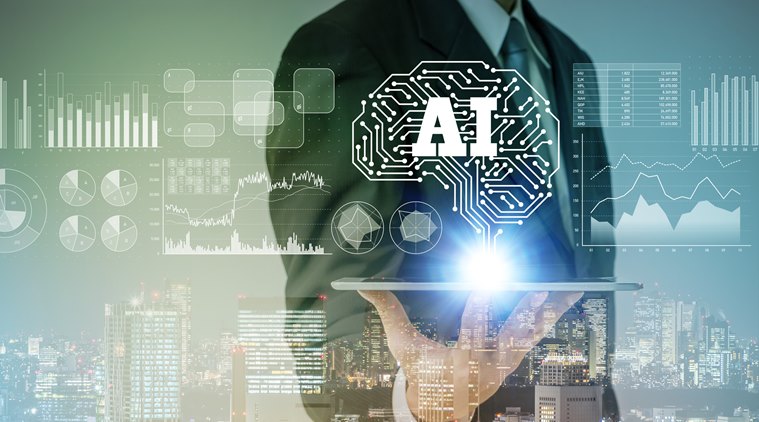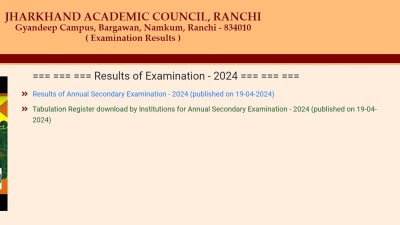- India
- International
Automation and AI in a changing business landscape
Automation and Artificial Intelligence (AI) can play a very important role in defining this “new normal” of work in the Covid-19 (and post-Covid-19) world.
 From the evidence available thus far, it seems apparent that the world will have to learn to adapt swiftly and significantly to a “new normal” of work to deal with the current (and potential future) phases of Covid-19. (Photo by iStock / Getty Images Plus)
From the evidence available thus far, it seems apparent that the world will have to learn to adapt swiftly and significantly to a “new normal” of work to deal with the current (and potential future) phases of Covid-19. (Photo by iStock / Getty Images Plus)
By Ravi Mehta, Sushant Kumaraswamy, Sudhi. H
The ongoing Covid-19 pandemic seems to generally have dispelled a few hardened organisational “myths” (for example, large scale work-from-home is not possible) and forced companies to relook at how they work and interact with key stakeholders. Companies, and subsequently employees have been compelled to innovate-on-the-go (for example, quickly shipping large screen monitors and printers to the home of employees before lockdown closed the markets). Perhaps, it would not be an exaggeration to say that even the best drafted Business Continuity Plans (BCPs) for most companies were stretched to the limit and yet struggled to cope with the rapid and unpredictable evolution of the pandemic. From the evidence available thus far, it seems apparent that the world will have to learn to adapt swiftly and significantly to a “new normal” of work to deal with the current (and potential future) phases of Covid-19. Automation and Artificial Intelligence (AI) can play a very important role in defining this “new normal” of work in the Covid-19 (and post-Covid-19) world. More specifically, automation and AI can help companies infuse three key attributes of agility/flexibility, responsiveness, and frugality, enabling companies to better adapt to the fast changing situations in the times of Covid-19.
Agility/flexibility: Most organisations in the pre-Covid-19 world were “human intensive,” wherein most work (especially in the non-manufacturing sectors) was performed by humans. A fundamental challenge with “human intensive” organisations is swift scalability based on the demands that the dynamic environment Covid-19 presents. For instance, when most governments announced policies related to mortgage payment deferment to help citizens better cope with Covid-19-related economic challenges, several banks and financial institutions had to scamper for additional human resources to process the sudden spike in these additional (and probably one-time and time-sensitive) transactions. This is where Automation and AI can help organisations significantly. Both Robotic Process Automation (RPA) and AI bots are typically hosted on servers and hence, do not need to change work locations as humans were required to. They can also be replicated (scaled up or down) almost on demand. The evidence in the marketplace suggests that those banks who had employed automation to deal with these demand fluctuations in work generally fared much better than those who relied primarily on humans working remotely to handle the additional workload.
Also Read: Twitter says employees can work from home forever
Responsiveness: Covid-19-induced lockdowns threw many well-defined and widely-followed processes off gear across companies. For instance, in several companies, IT and HR support were typically located in defined physical spaces or in call centres. However, as most employees began to work remotely, it became difficult for them to get answers on important IT and HR-related questions. Automation and AI can help manage these interactions efficiently and also enhance the stakeholder experience. For example, certain companies leveraged technologies such as chatbots to answer employee queries quickly, effectively, and remotely. This helped reduce employee anxiety and improve productivity. The same interaction technology can be leveraged to enhance interaction experience with other important stakeholders such as customers and vendors. Another example is that of a global automobile player, which recently launched its online sales, 360 degree digital services, and a contactless-service experience in the first week of April. They leveraged robotics, AI, and ML technologies to bring continuity to their operations and minimise disruptions for their customers.

Also Read: Govt extends relaxed ‘work from home’ norms till July 31 for IT firms, BPOs
Frugality: Covid-19 has significantly impacted the top line of most companies. Hence, it is crucial that companies focus on their bottom line to actively manage profitability. Automation and AI can help companies effectively manage and optimise costs. For example, technologies such as RPA, Natural Language Processing (NLP), and Natural Language Generation (NLG) can automate 25–50 per cent of processes. This will help companies achieve better outcomes at lower costs and also free up human time for higher value work (e.g., better serving high-value customers, responding faster to regulatory requirements or government directives).
Also Read: Govt staff may get work from home option for 15 days a year
Cyborg chess has demonstrated that when human and machine capabilities come together, they produce better results than both “human only” and “machine only” capabilities. As companies across the world adapt to new ways of working, automation and AI can create a HumBot (human + robot) workforce to effectively combine the human capability of superior thinking with the fast-execution capability of robots. Companies that successfully combine human and machine capabilities will not only survive the challenging conditions but will likely come out with newer, better, and stronger capabilities. These enhanced capabilities will enable organisations to “rewrite the rules of the game” in their industries and occupy a place of sustainable prominence in the revamped competitive landscape of the current and post-Covid-19 world.
The authors are Ravi Mehta, Partner; Sushant Kumaraswamy, Director and Sudhi. H, Associate Director, Deloitte India
More Tech
Apr 19: Latest News
- 01
- 02
- 03
- 04
- 05







































